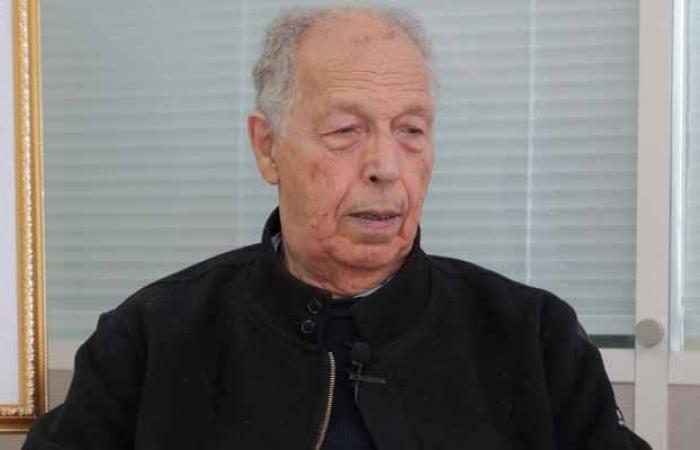
In this speech, HM the King reaffirmed that the issue of MRE constitutes a top national priority. The Sovereign highlighted their crucial role in the economic, social and cultural development of the country, calling for their contribution to be strengthened through renewed and more effective management mechanisms. The November 6 speech also emphasized the central role of MREs in defending national interests. This Royal recognition confirms that the Moroccan diaspora is perceived not only as a significant economic actor, but also as an ambassador of Moroccan values and identity on a global scale.
Libé: In your analyzes you raise a recurring criticism concerning the inaction in the management of the file of Moroccans residing abroad (MRE). Can you clarify your point of view on this question?
Abdelkrim Belguendouz: Indeed, this is a persistent structural problem. For several years we have been witnessing the repetition of the same speeches and promises from the government, but without tangible results. This observation of inaction mainly concerns the absence of notable changes despite numerous meetings and initiatives announced. This cycle of repetition reflects a lack of political will and concrete follow-up. The actors in charge of the file are often the same, which maintains a fixed approach, without innovation or questioning of the methods used.
What solutions do you propose to break with this structural inertia?
The first step would be to renew the figures involved in the management of this file and adopt an innovative approach. Speeches are necessary to set directions, but they must be followed by concrete measures. Transparent monitoring mechanisms should be established, with realistic but strict deadlines. Clear performance indicators and regular evaluation by an independent body are essential to ensure that the announced reforms are actually implemented.
You mention that the Royal speeches, in particular that of August 20, 2022, were not followed by a clear roadmap. Why do you think these reminders go unheeded?
The Royal speech of August 20, 2022, like several others before, effectively raised the importance of MREs. However, the lack of strategic vision and coordination between the different institutions concerned remains a major obstacle. Regular reminders without concrete follow-up create legitimate frustration among the diaspora. To avoid this, each announced initiative should be accompanied by precise indicators and be subject to rigorous monitoring. Establishing an accountability framework is essential so that commitments made do not remain mere declarations.
The speech of November 6 highlights the strategic importance of MREs, just after the question of territorial integrity. Why is this symbolic priority not translated into concrete actions?
This is a crucial question. The speeches of November 6, particularly in connection with the Green March, always underline the central role of MREs in the defense of national interests. However, this recognition often remains symbolic. Concrete actions to mobilize their economic potential are insufficient. For this priority to become real, it is imperative to create suitable tools, such as a “project bank” dedicated to MRE. In addition, the establishment of public-private partnerships could facilitate their investments in key sectors. Consular services must also be strengthened to better support MREs in their administrative procedures and investment projects.
Governance also seems to be a problem. You mentioned delays in the renewal of members of the Council of the Moroccan Community Abroad (CCME). What are your recommendations on this subject?
The CCME, whose renewal has been overdue since 2011, is a striking example of structural dysfunction. The creation of the Mohammedia Foundation for MRE, which replaces the Hassan II Foundation, is seen as a reform, but it remains insufficient without a clear redefinition of its missions. It is necessary to thoroughly review the governance of these structures, clarifying roles and improving coordination between the different institutions. The new foundation should have specific missions and broaden its interventions beyond cultural and religious aspects, by including concrete support for entrepreneurship and investment by MREs.
How can we guarantee better representation of MREs in decision-making processes?
MREs must be directly involved in decision-making processes. This involves regular consultation mechanisms and the creation of participatory platforms. It is also essential to strengthen Moroccan economic representations abroad. Consulates, often under-resourced in human and financial resources, must be restructured to offer better support to MREs. The creation of specialized investment offices within consulates could facilitate their procedures and promote opportunities in Morocco.
In conclusion, what priority measures would you recommend to transform the Moroccan diaspora into a real lever for development?
First of all, it is crucial to move from speeches to concrete actions. Managing issues related to MRE requires firm political will and a clear strategic vision. We must remove bureaucratic obstacles, strengthen transparency, and create rigorous monitoring mechanisms. The improvement of consular services, the establishment of a project bank, and the involvement of MREs in decision-making processes are all essential measures. By promoting the economic potential of the diaspora, Morocco could truly transform this community into an engine of national development.
Comments collected by Hassan Bentaleb Also read our file: Morocco, country of emigration





